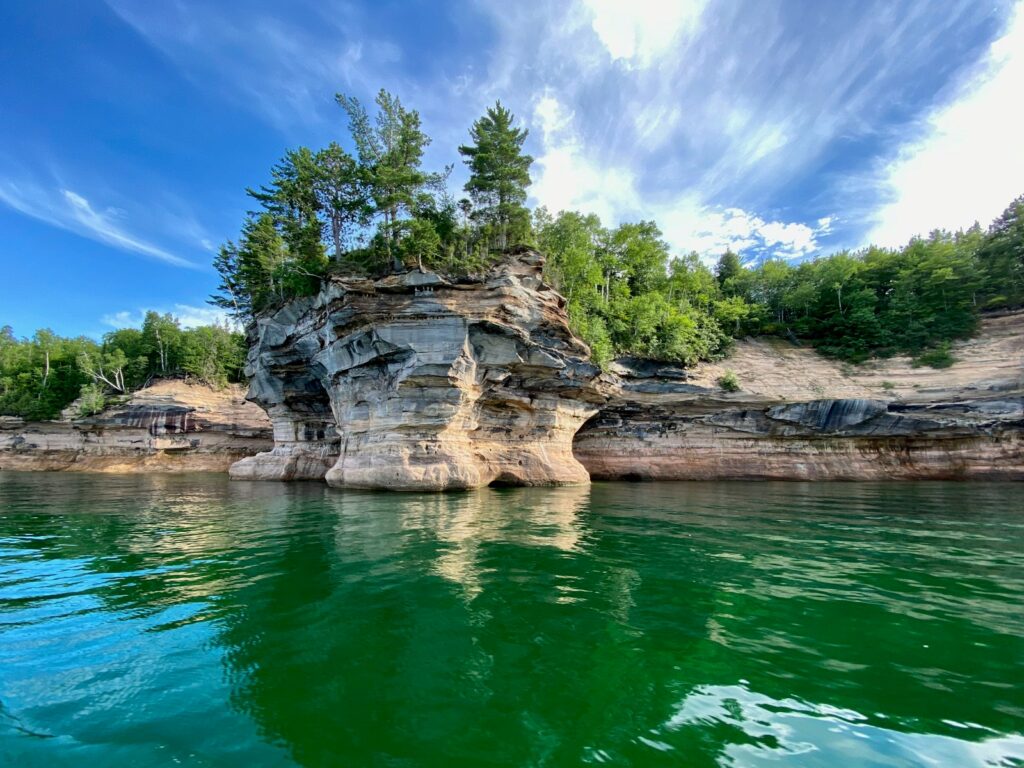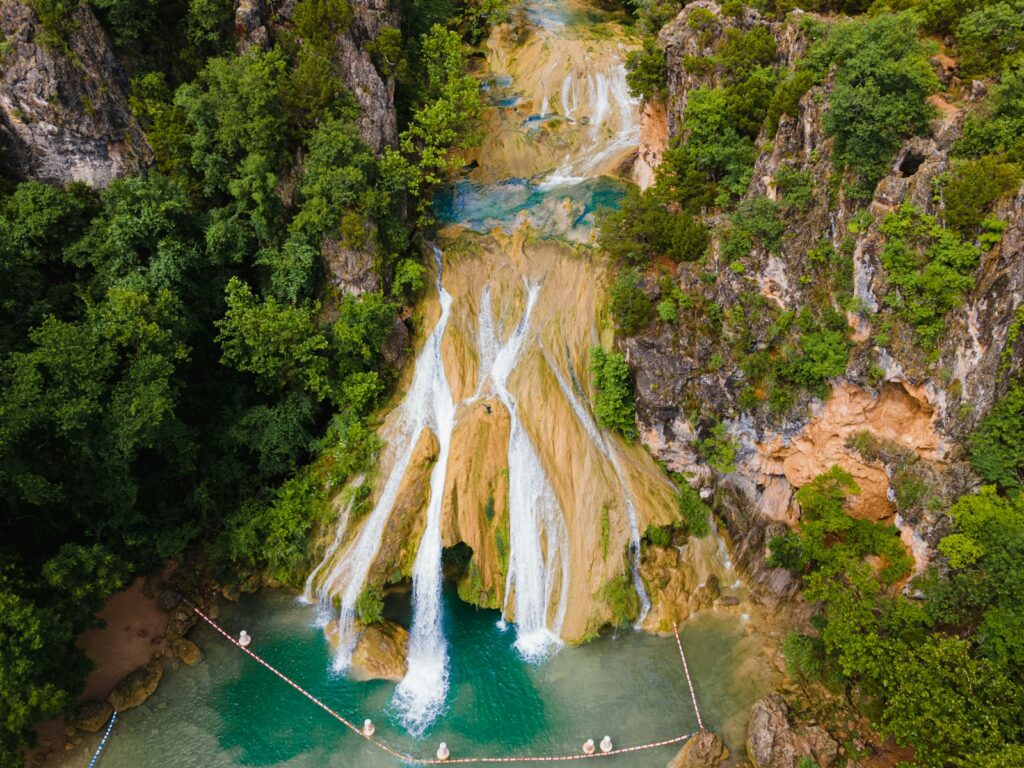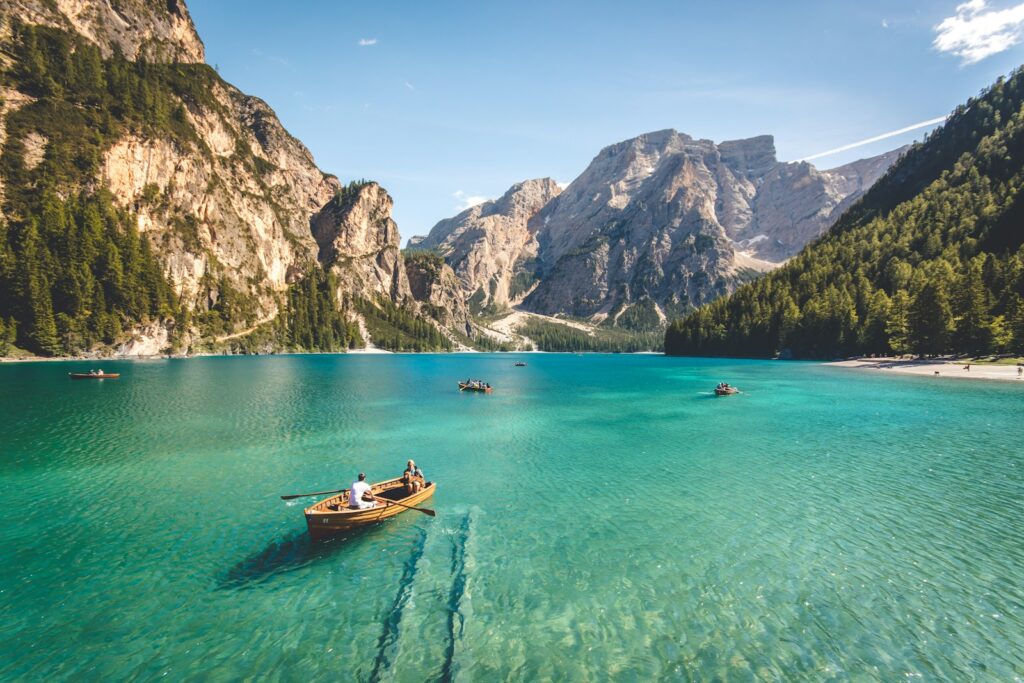World’s Beautiful Largest Lakes: From the tranquil expanses of freshwater to the shimmering depths of immense reservoirs, the world’s largest lakes beckon adventurers, scientists, and nature enthusiasts alike. These majestic bodies of water offer not only breathtaking beauty but also fascinating ecosystems, rich biodiversity, and significant cultural heritage. Let’s embark on a journey to explore some of the most remarkable lakes on our planet, marveling at their vastness and uncovering the secrets they hold beneath their surfaces.
1. Lake Superior: The Mighty Inland Sea

Located in: North America (USA, Canada) Surface Area: 31,700 square miles
Lake Superior, aptly named for its immense size, reigns as the largest freshwater lake by surface area in the world. This Great Lake stretches across the border between the United States and Canada, boasting stunning vistas and a rich maritime history. Its crystal-clear waters, dotted with picturesque islands and rugged coastlines, offer a playground for outdoor enthusiasts and a haven for diverse wildlife.
2. Lake Baikal: The Jewel of Siberia
Located in: Russia (Siberia) Surface Area: 12,248 square miles
Hidden amidst the remote wilderness of Siberia, Lake Baikal stands as the deepest and oldest freshwater lake on Earth. Its mystical allure and unparalleled biodiversity have earned it UNESCO World Heritage status. Baikal’s crystal-clear waters, frozen in winter’s embrace, give way to vibrant aquatic life during the brief Siberian summer, making it a hotspot for biologists and ecologists.
3. Lake Victoria: Heart of Africa

Located in: Africa (Tanzania, Uganda, Kenya) Surface Area: 26,590 square miles
Nestled amidst the verdant landscapes of East Africa, Lake Victoria holds the distinction of being the largest lake on the African continent. Revered as the source of the mighty Nile River, this vast expanse of water sustains millions of people and an array of unique flora and fauna. Its shores teem with life, offering a glimpse into the rich cultural tapestry of the region.
4. The Caspian Sea: A Lake of Superlatives
Located in Eurasia (Iran, Russia, Kazakhstan, Turkmenistan, and Azerbaijan) Surface Area: 143,000 square miles
Despite its name, the Caspian Sea is technically the world’s largest saltwater lake, bordered by five countries in Eurasia. This ancient body of water, shrouded in myth and legend, holds immense economic and ecological significance for the surrounding region. From its bustling port cities to its vast oil reserves, the Caspian Sea continues to shape the geopolitics of the Caspian Basin.
5. Lake Tanganyika: Africa’s Rift Valley Gem

Located in: Africa (Tanzania, Democratic Republic of the Congo, Burundi, Zambia) Surface Area: 12,700 square miles
Nestled within the Great Rift Valley of East Africa, Lake Tanganyika ranks as the second-deepest lake in the world, surpassed only by Lake Baikal. Its crystal-clear waters harbor a diverse array of endemic species, including colorful cichlid fish found nowhere else on Earth. Tanganyika’s shores offer a glimpse into the daily lives of local communities, whose livelihoods are intricately tied to the lake’s bounty.
6. Great Bear Lake: Canada’s Northern Gem
Located in North America (Canada) Surface Area: 12,028 square miles
Tucked away in the pristine wilderness of Canada’s Northwest Territories, Great Bear Lake holds the distinction of being the largest lake entirely within Canadian borders. Its remote location and pristine waters make it a haven for anglers, paddlers, and wildlife enthusiasts seeking solitude amidst nature’s splendor. Under its icy surface lies a trove of geological wonders and untold stories waiting to be discovered.
7. Lake Malawi: Africa’s Lake of Stars
Located in Africa (Malawi, Mozambique, Tanzania) Surface Area: 11,400 square miles
Known locally as Lake Nyasa, Lake Malawi dazzles visitors with its azure waters and sandy shores. Renowned for its stunning biodiversity, including hundreds of species of colorful cichlid fish, this African Great Lake is a paradise for snorkelers and scuba divers. Its tranquil shores and vibrant sunsets have inspired poets and artists for centuries, earning it the nickname “Lake of Stars.”
In Conclusion, The world’s largest lakes are not merely bodies of water; they are living, breathing ecosystems that shape the landscapes and cultures of the regions they inhabit. From the icy depths of Lake Baikal to the sun-drenched shores of Lake Victoria, each of these majestic lakes offers a window into the wonders of our planet’s natural heritage. Whether exploring their shores, delving into their depths, or simply admiring their beauty from afar, one thing is certain: the allure of these vast expanses of water is truly irresistible.
FAQs (Frequently Asked Questions) About World’s Beautiful Largest Lakes
1. Which is the largest lake by volume?
Lake Baikal holds the title of the world’s largest lake by volume, containing approximately 20% of the Earth’s unfrozen freshwater.
2. Are there any endangered species in Lake Victoria?
Yes, Lake Victoria is home to several endangered species, including the Victoria tilapia and the Nile perch.
3. Can you swim in the Caspian Sea?
Yes, you can swim in the Caspian Sea, but it’s essential to be cautious due to its size and variable conditions.
4. Are there any islands in Lake Superior?
Yes, Lake Superior is dotted with numerous islands, including Isle Royale, the largest island in the lake.
5. What makes Lake Tanganyika unique?
Lake Tanganyika is unique due to its incredible depth, biodiversity, and the fact that it is one of the oldest lakes in the world, estimated to be around 9 to 12 million years old.


